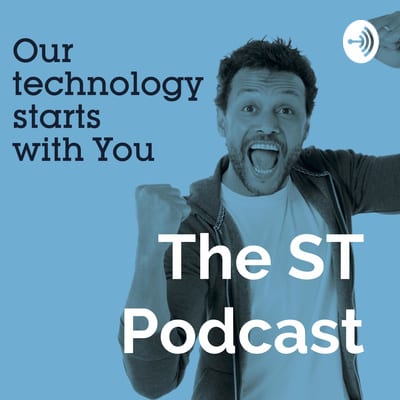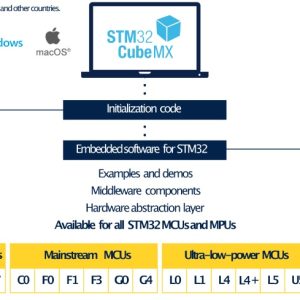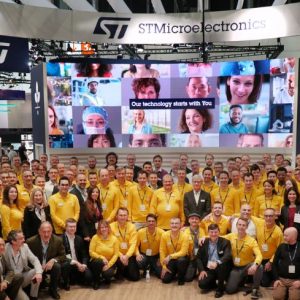What if swapping between MCUs or MPUs was as easy as swapping modules? That’s precisely what Emcraft, a member of the ST Partner Program, managed to do with their Starter Kit. They have boards that can receive their STM32MP1 SOM and other Starter Kits for their STM32H7 SOM. In both cases, the M.2 and CLICK connectors on the motherboard can host a Wi-Fi and Bluetooth module to facilitate the creation of wireless applications that interact with the cloud. Both SoMs can run a Linux kernel, while the STM32H7 also supports FreeRTOS. In a nutshell, Emcraft’s modules and platform solve some of the more complex design challenges so developers can focus on their applications.
ST: 2 ways to make technology more accessible
Lowering the barrier to entry
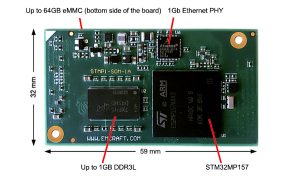
ST loves development boards. Avid readers of the ST Blog know that we release at least one with every new STM32 MCU. We even have boards for sensors, LDOs, networking, and more. ST engineers often use various PCBs to build a stack that acts as a proof of concept or serves to teach a product’s intricacies. There are the traditional Nucleo boards, but we also provide feature-rich Discovery Kits and Evaluation Boards that may offer a display, connectivity, and sensors. Although some of the newest development platforms, like the STM32WBA55G-DK1, have adopted a modular architecture, most of our boards don’t enable users to swap between MCUs or sensors.
The reason behind our approach is simple: most of our customers have very different needs and objectives. By creating a cost-effective yet feature-rich board, we reduce the barrier to entry, enabling even students to grab a board and experiment with an MCU, a sensor, etc. This approach means we can provide source code that requires very few changes before it compiles or pre-compiled binaries that run out of the box. Hence, even developers without experience in the STM32 development ecosystem can test applications and experiment with our products.
Opening the way to new development paradigms
However, we know that some in our community are looking for a more modular or PC-like paradigm where multiple engineers could swap MCUs or MPUs as easily as one could swap a GPU or CPU in a Windows machine. We recognize the analogy isn’t perfect. Nevertheless, in broad strokes, just like Windows users can change their GPU or CPU without recompiling their mail client, some embedded systems developers want to experiment with different devices without recompiling the drivers for their Wi-Fi card or the application connecting to their cloud.
Emcraft: The 3 engines driving their Starter Kits for STM32 SoMs
Portability
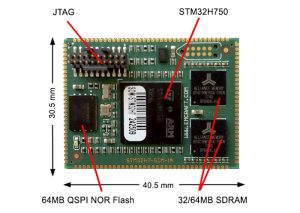
That’s exactly what EmCraft is bringing with their Starter Kits and their ability to swap between SoMs. And while SoMs with an MPU running Embedded Linux, like the STM32MP1 SOM, are common, a SoM with an MCU, like the STM32H7 SOM, are far rarer. Furthermore, it is uncommon to see an MCU running Linux since the vast majority use a real-time operating system.However, by abstracting the hardware design and leveraging parts of the Linux kernel previously belonging to the µClinux project, Emcraft can even provide a “PC-like” experience for a device like the STM32H7, thus making their platform modular and highly portable.
Practicality
The STM32H750 SOM comes with 32 MB or 64 MB of DDRAM, depending on the model, 64 MB of QSPI NOR flash for storage, and an optional 64 KB of EEPROM for faster writing operations. The STM32MP1 SOM comes with 1 GB of DDR3L, a 64 GB eMMC for storage, and a 1 Gb Ethernet PHY module. Both models fit starter kits that support displays that can fit onto the stack, thus facilitating the creation of a graphical user interface very early on in the development process.
Additionally, Emcraft provides SoM schematics and baseboard CAD, ensuring engineers can rapidly move to their custom design after the proof-of-concept phase. Customers reaching volume are eligible for the SOM-2-CM program, which provides SOM CAD.
Flexibility
As rapid prototyping and agile developments are taking over the world of embedded systems, Emcraft and ST see a rising demand for a platform that’s a lot more flexible and can fit a lot more use cases. That’s why the ST Authorized Partner has been working with us to support more MCUs and MPUs and even support Linux on STM32 microprocessors and even on STM32 microcontrollers, thus offering a portable platform for developers simply looking to run existing systems as rapidly and easily as possible. In a nutshell, SoMs provide a level of freedom that is becoming critical for engineers looking to keep up with the rate of innovation.
